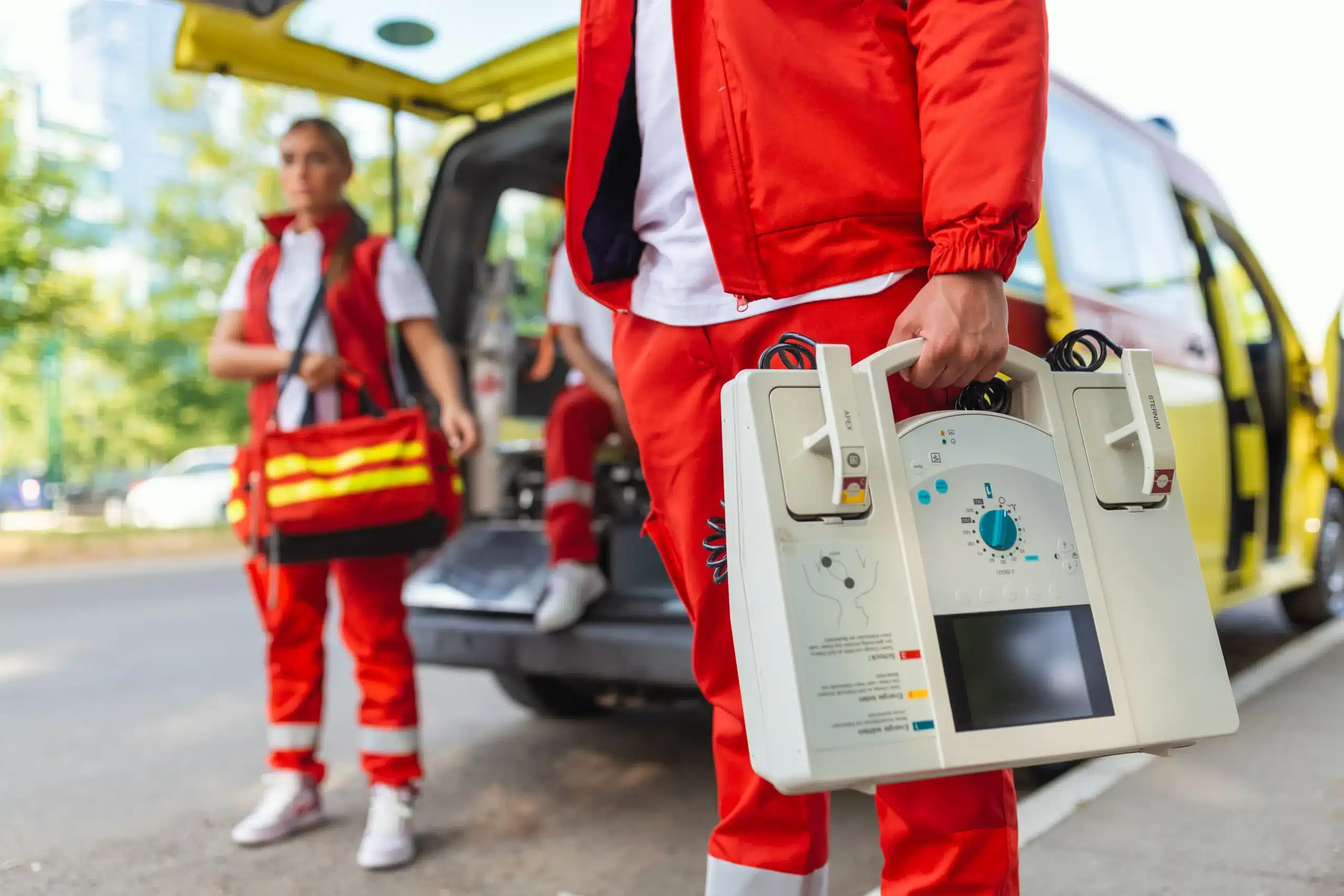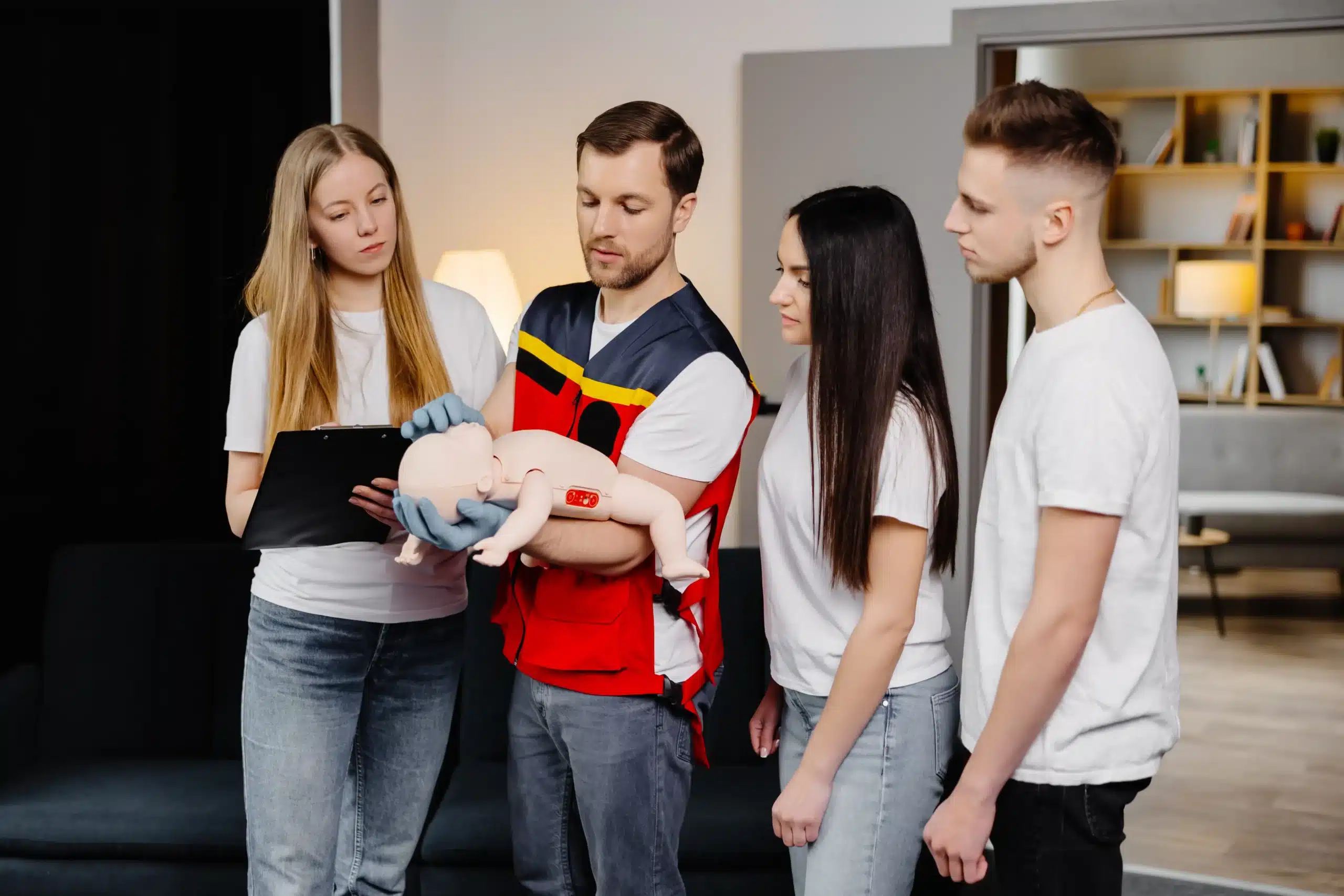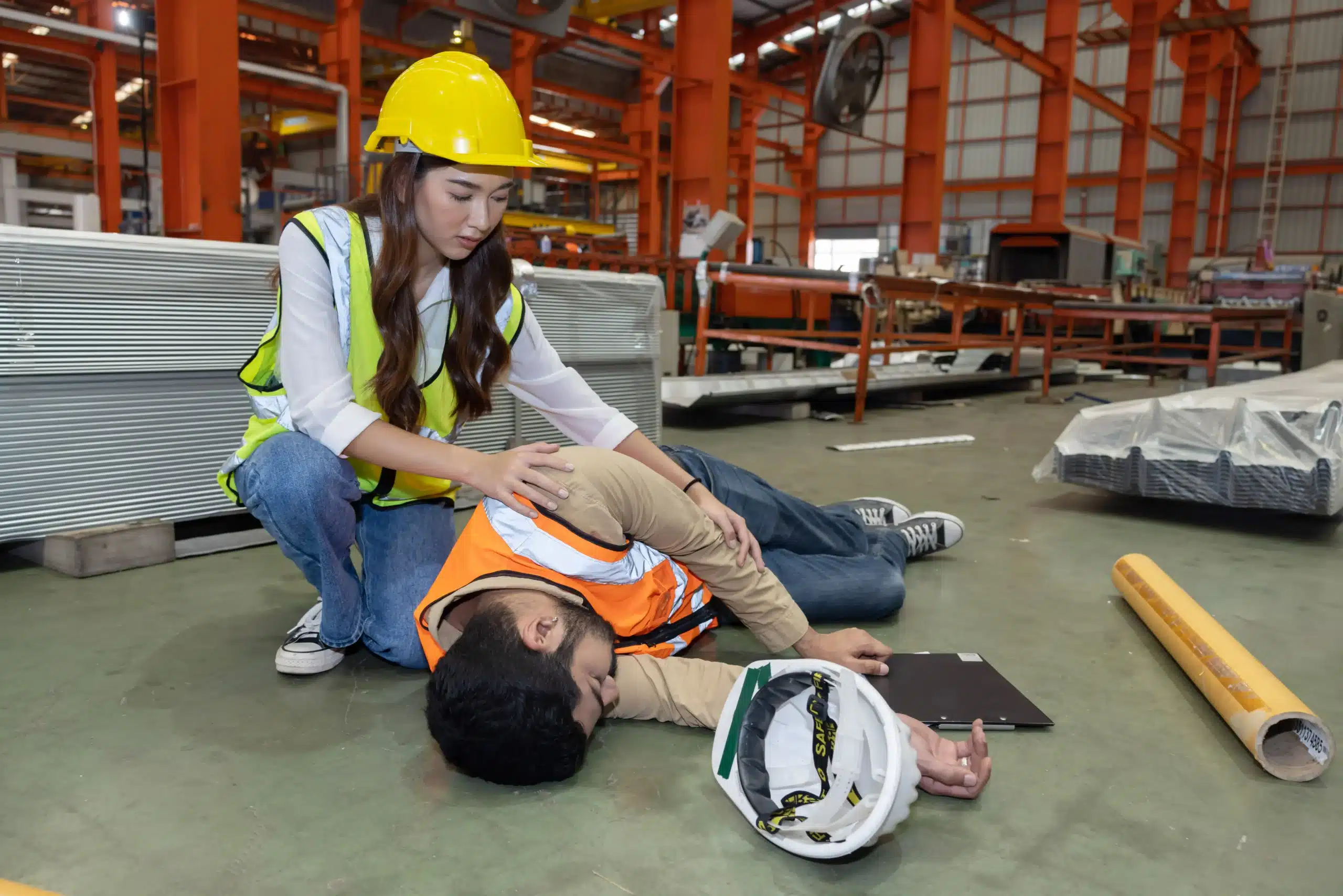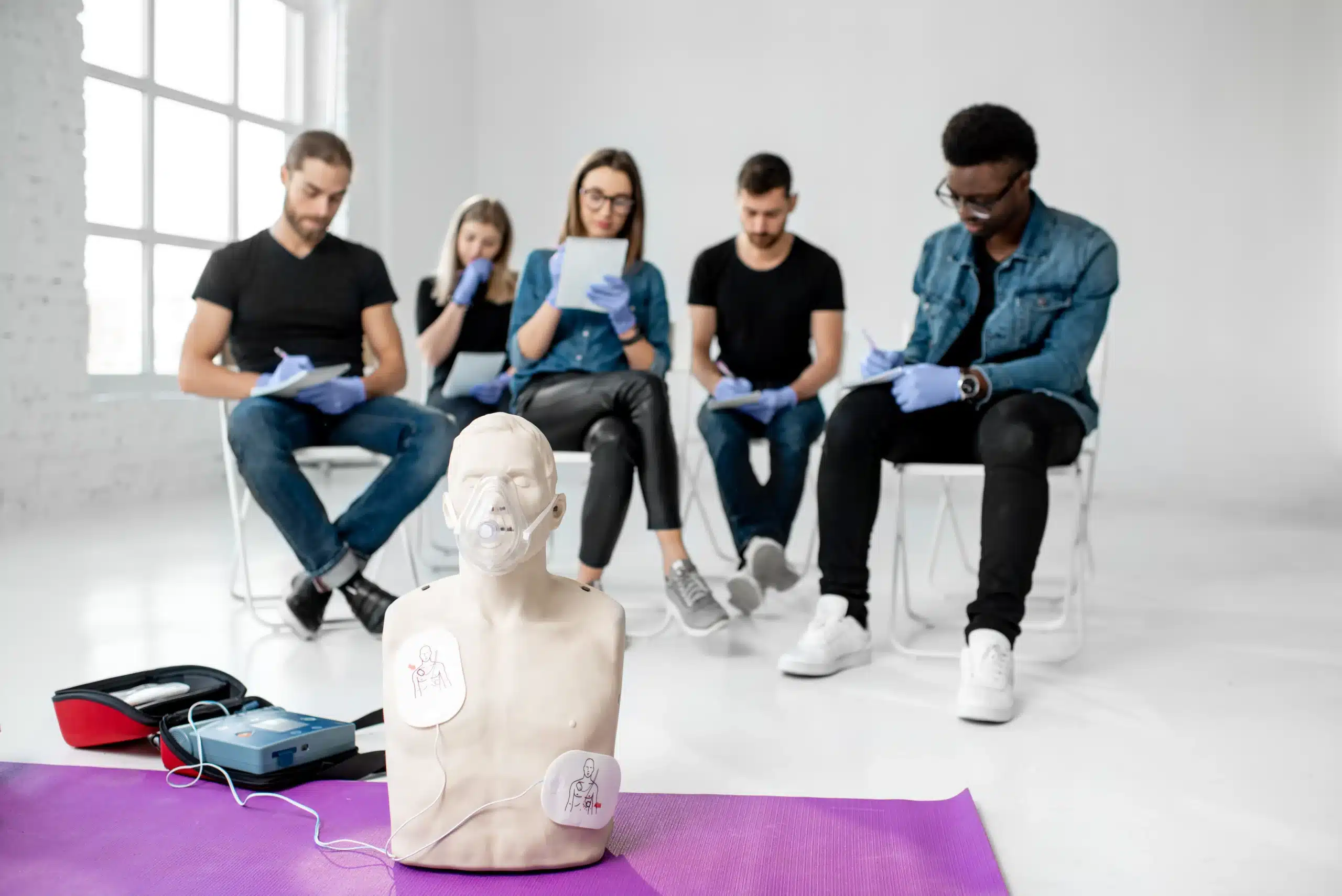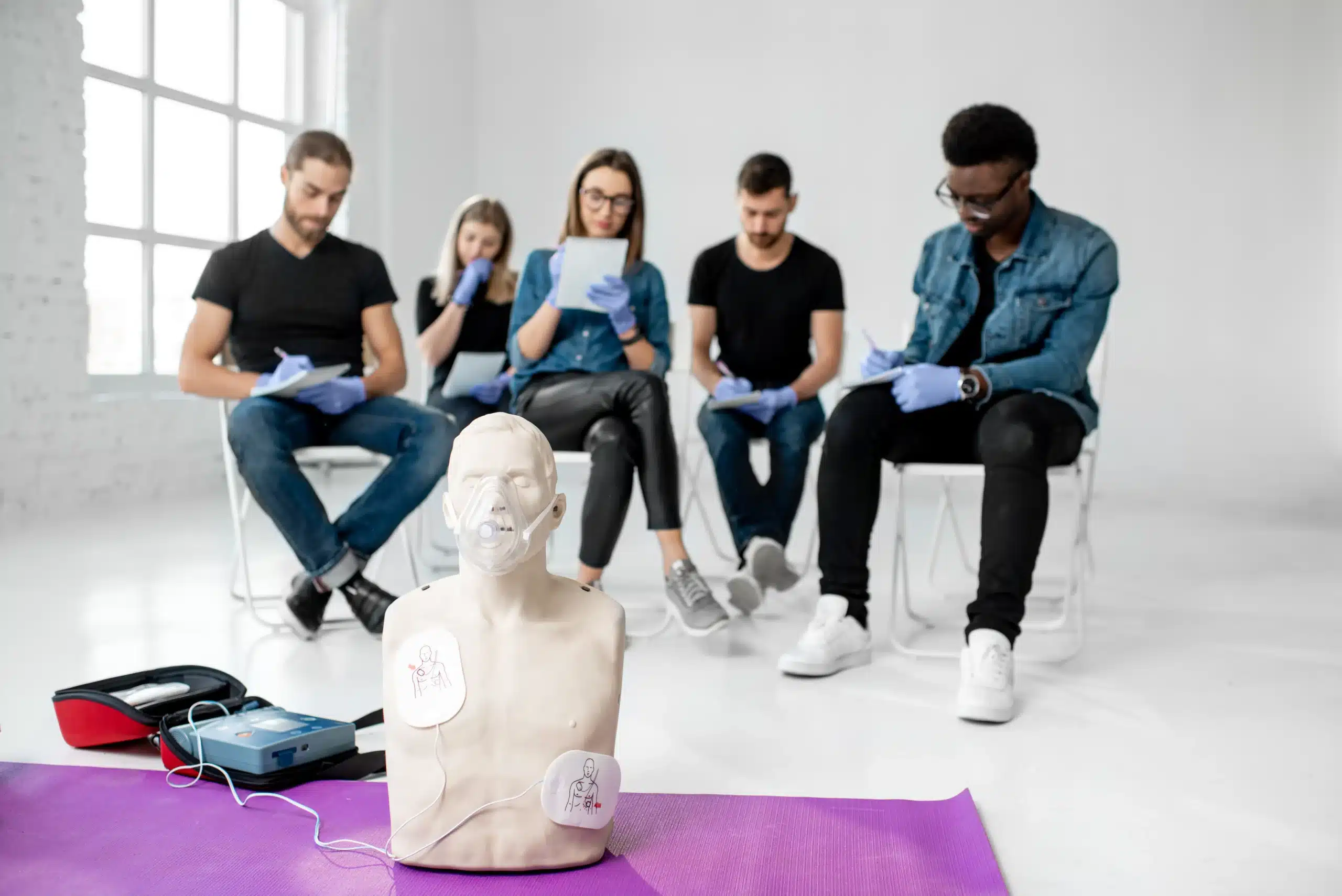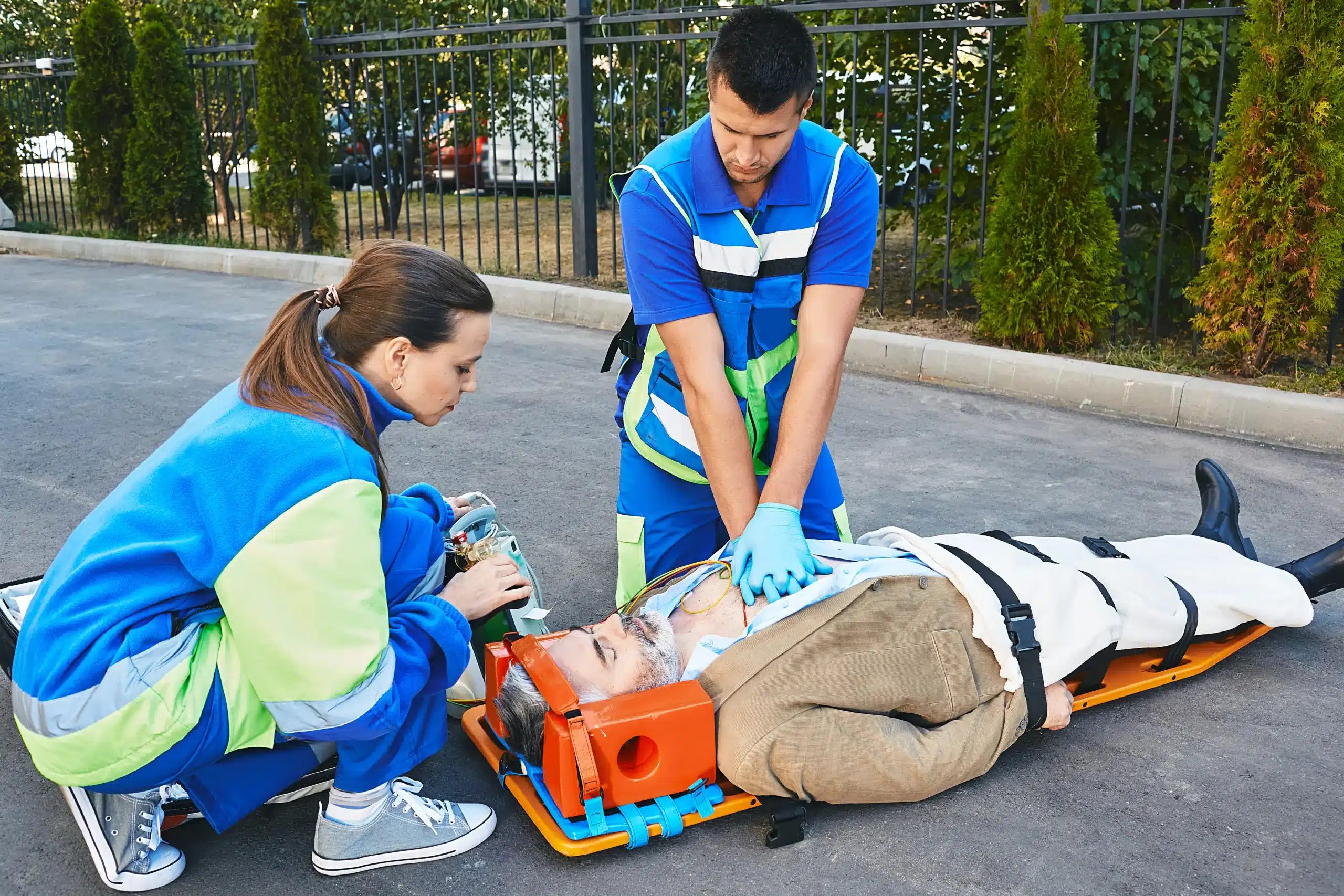Are you a healthcare professional seeking to enhance your skills in managing cardiac emergencies? Advanced Cardiac Life Support (ACLS) training is a crucial step in providing comprehensive patient care. This guide explores the world of ACLS, from the fundamental course content and structure to finding the right training program for advanced cardiac life support in Woodland. We’ll discuss the importance of qualified instructors, the certification process, and the value of regular recertification. We’ll also debunk common misconceptions about who needs ACLS training and what it entails. Join us as we unpack the essential elements of ACLS and empower you to confidently handle cardiovascular emergencies, ultimately improving patient outcomes.
Key Takeaways
- ACLS training equips healthcare professionals with advanced life-saving skills: It’s crucial for anyone regularly involved in emergency cardiac care, going beyond basic CPR to cover complex situations. Find a course format—in-person, blended, or online—that suits your needs.
- Choose an AHA-certified training center with qualified instructors: Look for experienced professionals who can provide real-world context and create a supportive learning environment. Asking potential providers about their backgrounds and teaching styles is essential.
- Maintain your skills through regular recertification: Staying current with the latest AHA guidelines and advancements in cardiac care is vital. Plan to recertify every two years to ensure you’re always prepared for emergencies.
What is Advanced Cardiac Life Support (ACLS)?
Advanced Cardiovascular Life Support (ACLS) is an advanced, instructor-led classroom course that teaches healthcare professionals how to manage cardiopulmonary arrest and other cardiovascular emergencies. It builds upon the foundation of Basic Life Support (BLS) skills, equipping providers with the knowledge and techniques to handle serious medical situations. This specialized training focuses on the first 10 minutes of a cardiovascular emergency. Think of it as the next level of expertise for those regularly facing urgent medical situations.
Key ACLS Training Components
ACLS training covers a wide range of topics essential for effective emergency response. It emphasizes early recognition and intervention in cardiac arrest, including high-quality CPR and effective ventilation strategies. The curriculum also delves into acute coronary syndromes, stroke, and other respiratory emergencies. Participants learn to interpret electrocardiograms (ECGs), administer medications, and work as a team during resuscitation efforts. The American Heart Association (AHA) provides comprehensive guidelines and resources for AHA’s BLS course as a prerequisite or refresher for those needing to update their skills.
Why Healthcare Professionals Need ACLS
ACLS certification is crucial for healthcare providers who may encounter cardiac emergencies. It goes beyond basic CPR, providing a deeper understanding of cardiovascular physiology and pharmacology. This knowledge enables professionals to make quick, informed decisions in critical situations, potentially saving lives. ACLS training isn’t limited to doctors and nurses; it’s valuable for anyone involved in emergency medical care, including paramedics, respiratory therapists, and emergency medical technicians. Having a team of ACLS-certified professionals ensures a coordinated and effective response to cardiac emergencies, improving patient outcomes. For healthcare professionals in Davis, Woodland, and Sacramento, Davis CPR Classes offers convenient and affordable ACLS training. You can view our course schedule and register for upcoming BLS courses in Davis.
ACLS Training Providers in Woodland
Finding the right Advanced Cardiac Life Support (ACLS) training is essential for healthcare professionals. Here are a few providers offering ACLS courses in and around Woodland, CA:
Davis CPR Classes
Davis CPR Classes offers a variety of CPR, BLS, ACLS, and PALS courses to meet the diverse needs of healthcare providers. Their American Heart Association RQI program is a popular choice for medical professionals seeking BLS, ACLS, and PALS certification. While their primary location serves Davis, Woodland, and Sacramento, they offer classes in over 60 cities. Visit their website for current schedules and course availability.
Safety Training Seminars
Safety Training Seminars, a woman-owned AHA Training Center, provides BLS, ACLS, PALS, CPR, and First-aid courses in Woodland. They focus on convenient scheduling, with classes offered daily. Explore their website to find a course that fits your schedule.
Kiser CPR
Kiser CPR offers AHA-certified ACLS courses designed for initial certifications, renewals, and experienced providers. Their training emphasizes essential life-saving techniques and protocols for managing cardiac emergencies.
American Heart Association Certified Centers
When selecting an ACLS course, prioritize training centers certified by the American Heart Association. These centers adhere to the latest AHA guidelines and provide high-quality instruction. Safety Training Seminars, for example, is an AHA-certified center with several locations throughout the Sacramento area, offering convenient training options.
Course Formats and Flexible Learning
Finding the right ACLS course often comes down to format and scheduling. Luckily, there are several options available in Woodland, CA, catering to different learning styles and preferences. Whether you thrive in a traditional classroom, prefer the flexibility of online learning, or learn best through hands-on practice, you can find a course that fits.
In-Person Classes
For those who value face-to-face instruction and interaction, in-person ACLS classes are a great option. Providers like Safety Training Seminars offer these courses in Woodland, conveniently located near Sacramento and Elk Grove. In-person classes provide a structured environment with opportunities to ask questions, engage with instructors, and practice skills alongside peers. Davis CPR Classes also offers in-person training and can even arrange group classes at your location, making it convenient for busy healthcare teams.
Online Components (RQI)
The American Heart Association’s Resuscitation Quality Improvement (RQI) program offers a blended learning approach. RQI uses online modules for self-paced learning, allowing you to study the material when and where it’s most convenient. This format is particularly helpful for refreshing core concepts and maintaining skills between traditional in-person renewals. RQI programs often integrate online learning with hands-on skills sessions and simulation practice.
Hybrid Options
Hybrid courses combine online learning with in-person skills sessions and simulation practice. This approach offers flexibility while still providing the hands-on training crucial for mastering ACLS techniques. Davis CPR Classes offers a variety of course formats, including hybrid options, to accommodate different schedules and learning preferences. This allows you to complete some coursework online at your own pace and then attend an in-person session for hands-on training and assessment.
Simulation-Based Learning
ACLS training emphasizes practical application, and simulation-based learning is vital. High-quality ACLS courses, like those offered by Davis CPR Classes, incorporate realistic simulations to reinforce key concepts and build confidence. These simulations let you practice managing complex medical emergencies in a safe and controlled environment. Hands-on learning is essential for developing the critical thinking and decision-making skills required in real-world emergencies.
ACLS Course Content and Structure
This section covers the key elements of an Advanced Cardiac Life Support (ACLS) course, providing a glimpse into what you can expect during your training.
Core ACLS Algorithms
ACLS courses emphasize a systematic approach to patient care, using established algorithms to guide diagnosis and treatment. These algorithms provide a structured framework for managing cardiac arrest and other cardiovascular emergencies. They break down the process into steps for initial evaluation, intervention, rhythm checks (shockable vs. non-shockable), and post-resuscitation care. This structured approach helps healthcare providers make quick, informed decisions under pressure. For more information, you can review Medscape’s article on ACLS.
Hands-On Practice
ACLS training isn’t just about theory; it’s about practical application. The course includes hands-on practice with advanced medical equipment, allowing you to develop crucial skills in a simulated environment. This practical experience builds confidence and competence in performing essential life-saving techniques and protocols for cardiac emergencies. Kiser CPR’s website details the hands-on components of their ACLS course.
Interprofessional Education
ACLS courses often bring together healthcare professionals from various disciplines. This interprofessional learning environment fosters collaboration and communication, reflecting the real-world dynamics of a medical emergency response team. The diverse perspectives shared during training enhance the overall learning experience and prepare participants to work effectively within a multidisciplinary team. For a better understanding of who benefits from ACLS training, you can read more on Medtigo.
American Heart Association Guidelines
ACLS courses adhere to the latest guidelines established by the American Heart Association (AHA). These guidelines ensure that the training you receive is up-to-date and aligned with best practices in resuscitation and cardiovascular care. The AHA’s Resuscitation Quality Improvement (RQI) program offers a modern and efficient path for medical professionals seeking certification. Woodland CPR Classes offers information on AHA-compliant courses, including RQI options.
Instructor Qualifications and Expertise
When your life is on the line, you want the best medical professionals by your side. The same applies to choosing an ACLS instructor. Their expertise directly impacts your ability to confidently respond to cardiac emergencies. Here’s what to look for in a qualified ACLS instructor:
Instructor Medical Backgrounds
ACLS instructors often have extensive backgrounds in fields like emergency medicine, critical care, and cardiology. This practical experience allows them to provide real-world context to the algorithms and procedures you’ll learn in your ACLS course. Experienced instructors can answer your questions thoroughly, drawing on their own experiences to illustrate key concepts. This background is especially relevant for healthcare providers such as emergency room physicians, anesthesiologists, critical care nurses, and paramedics who regularly face cardiac emergencies. Cascade Training Solutions highlights how ACLS training is crucial for these medical professionals.
AHA Certification Requirements
All ACLS instructors must meet stringent requirements set by the American Heart Association (AHA). This includes holding a current AHA ACLS Provider certification, ensuring instructors are knowledgeable about the most up-to-date guidelines and best practices. Upon successful completion of an AHA-approved ACLS course, participants receive an ACLS Provider Course Completion Card, valid for two years. Knowing your instructor has met these standards reinforces the quality and validity of your training.
Teaching Experience and Continuing Education
Beyond medical background and certifications, look for instructors with a passion for teaching. Effective communication and a supportive learning environment are crucial for mastering complex ACLS algorithms. Instructors who actively pursue continuing education demonstrate a commitment to staying current with the latest advancements in ACLS care. This dedication benefits you directly, ensuring you receive training that reflects the most recent evidence-based practices. Regular recertification is essential for healthcare providers to stay updated, especially given that ACLS goes beyond basic CPR. It encompasses a broader range of skills and knowledge crucial for managing complex cardiac emergencies.
ACLS Certification: Process and Validity
This section covers how to get your ACLS certification, what’s involved, and how long it lasts.
Get Certified: Steps to Take
Getting your ACLS certification is simple. First, find an American Heart Association (AHA) authorized training center, like Davis CPR Classes. We offer courses in over 60 cities, and our Davis location serves Davis, Woodland, and Sacramento. Check out our website for BLS courses in Davis. The RQI program is a great option for medical professionals looking for a flexible way to get certified. After you choose a course and register, you’ll complete the required coursework, which includes online and in-person components.
Theoretical and Practical Assessments
ACLS certification involves both a written exam and hands-on skills testing. You’ll demonstrate your knowledge of algorithms and protocols through a written exam. ACLS classes in Davis also include hands-on simulations. These practical sessions let you apply your knowledge and build confidence in a safe environment. This mix of learning and practice ensures you’re ready for real-world emergencies.
Certification Validity and Renewal
After successfully completing the ACLS course, you’ll receive an ACLS Provider card, valid for two years. Staying up-to-date on the latest advances in cardiac care is essential. Recertification is required every two years to maintain your ACLS certification. This ensures you have the most current knowledge and techniques. Davis CPR Classes offers various recertification courses to fit your schedule. We also have a low price guarantee to make certification affordable.
Cost and Value
Finding high-quality, yet affordable, Advanced Cardiac Life Support (ACLS) training is a priority for many healthcare professionals. Understanding typical costs and exploring available discounts can help you make an informed decision.
Average Woodland Pricing
ACLS course fees in Woodland, CA, are generally competitive with surrounding areas like Sacramento and Elk Grove. You’ll find providers offering a range of prices, so comparing options is worthwhile. Safety Training Seminars offers courses in Woodland, conveniently located near these cities, and their pricing is often a good benchmark for the region. Contacting various providers directly or checking their websites is the best way to get current pricing information.
Group Discounts and Promotions
If you’re coordinating training for a group of colleagues or your entire department, ask about group discounts. Many providers, including Safety Training Seminars, offer reduced rates for group bookings. This can significantly reduce costs, especially for larger organizations. Also, keep an eye out for promotional offers. Some providers run seasonal specials or discounts for early registration.
Low Price Guarantees
Look for providers who stand behind their pricing with a low-price guarantee. For example, Safety Training Seminars offers a low-price guarantee on CPR, BLS, and other courses in nearby Davis. A low-price guarantee provides reassurance that you’re receiving competitive pricing and excellent value for your investment. Remember, the value of ACLS training extends beyond the certification itself; it’s an investment in your professional development and ability to provide critical care.
Prepare for Your ACLS Course
Getting ready for your ACLS course involves some prep work, both with materials and mindset. Knowing what to expect and how to best prepare can significantly impact your learning experience.
Required Materials and Pre-Course Study
The American Heart Association (AHA) offers the Resuscitation Quality Improvement (RQI) program, a popular way for medical professionals in Woodland to pursue their AHA certifications for BLS, ACLS, and PALS. Check with your chosen provider—Davis CPR Classes is one option—to see if they use the RQI program and what materials they recommend. You’ll likely need access to current ACLS provider manuals and any pre-course work they suggest. Reviewing these beforehand can give you a head start. ACLS training involves hands-on practice with advanced medical equipment, so be prepared for a hands-on learning experience.
Physical and Mental Readiness Tips
ACLS training is designed for various healthcare providers who regularly handle cardiac emergencies. With this in mind, it’s helpful to approach the course with realistic expectations about the intensity and focus involved. Reviewing the ACLS guidelines beforehand can boost your confidence. Being well-rested and nourished is essential for any learning, so take care of your physical well-being on the day of your training. Mentally preparing for a focused learning experience will also help you absorb the information effectively.
Choose the Right ACLS Training
Finding the right Advanced Cardiac Life Support (ACLS) training is crucial for healthcare providers. It’s an investment in your skills and your patients’ well-being. Consider these factors when making your decision:
Factors to Consider
Think about what you need from your ACLS training. Do you learn best in a traditional classroom or would a more flexible, blended learning approach be a better fit? Davis CPR Classes offers various course formats, including in-person and blended learning options incorporating the RQI program. This flexibility lets you choose a learning style that works for you. Also, consider the location and schedule. Is the training center easy to get to? Do the course times fit your schedule? Davis CPR Classes offers courses in over 60 cities, making it simpler to find a class nearby.
Another important factor is the training center’s reputation and instructor qualifications. Look for a certified American Heart Association (AHA) Training Center like Davis CPR Classes, which is also woman-owned. This ensures the course follows the latest AHA guidelines and is taught by qualified instructors. Finally, consider the overall value. While cost is a factor, prioritize the quality of the instruction and resources. Davis CPR Classes offers a low price guarantee, ensuring you receive high-quality training at a competitive price.
Questions for Potential Providers
Before enrolling in an ACLS course, ask potential providers these key questions:
First, confirm their certification and accreditation. Are they an AHA-certified training center? This guarantees the course meets the AHA’s standards. Ask about the course structure and support offered. Does the course include hands-on practice and simulations? Will you have access to instructors for questions and guidance? Inquire about post-training resources. Will you receive a certification card upon completion? What about continuing education opportunities? Understanding these aspects helps you choose a program that provides comprehensive training and ongoing support. You can find upcoming BLS courses in Davis on the Safety Training Seminars website. They also offer additional health and safety training, including lead poisoning prevention resources.
Common ACLS Training Misconceptions
It’s easy to get confused about Advanced Cardiac Life Support (ACLS) training, especially if you’re new to the field or haven’t taken a refresher course recently. Let’s clear up some common misunderstandings.
Who Should Take ACLS?
One frequent misunderstanding is about who needs this training. ACLS certification isn’t just for doctors. While physicians certainly benefit, it’s applicable to a wide range of healthcare providers who regularly encounter cardiac emergencies. This includes nurses, paramedics, respiratory therapists, and other professionals involved in emergency cardiac care. If your work involves responding to or managing these situations, ACLS training is likely relevant for you. Check with your employer or professional organization for specific requirements.
ACLS vs. Basic CPR
Another area of confusion is the difference between ACLS and basic CPR. While CPR is a foundational skill taught in basic life support classes and a critical component of ACLS, ACLS training goes much further. It incorporates advanced interventions like administering medications, managing airways with advanced techniques, and using defibrillators. Think of CPR as the first step, while ACLS provides the advanced knowledge and skills to handle complex cardiac emergencies. You can learn more about basic life support and CPR courses on the Davis CPR Classes website.
The Importance of Regular Recertification
Finally, it’s important to remember that ACLS certification isn’t a one-and-done deal. Like many certifications in the healthcare field, ACLS requires regular recertification. This ensures healthcare providers stay up-to-date with the latest advancements in ACLS care and adhere to current American Heart Association guidelines. Medical knowledge and best practices are constantly evolving, so staying current is crucial for providing the best possible patient care. Find recertification courses and information on the Davis CPR Classes website.
Related Articles
- AHA ACLS Classes in Davis, CA – Davis CPR Classes
- BLS Classes in Sacramento: The Complete Guide – Davis CPR Classes
- CPR Training in Sacramento: A Comprehensive Guide – Davis CPR Classes
- CPR, BLS, ACLS, PALS, and First-aid Courses in Davis, CA
- Essential Role of CPR in Healthcare: A Lifesaving Skill
Frequently Asked Questions
Is ACLS certification only for doctors and nurses? Not at all! While essential for doctors and nurses, ACLS certification benefits any healthcare professional who might encounter cardiac emergencies. This includes paramedics, respiratory therapists, emergency medical technicians, and others involved in acute care settings.
How is ACLS different from basic CPR? ACLS builds upon the foundational skills of CPR. Think of CPR as the first response, while ACLS provides the advanced knowledge and skills to manage complex cardiovascular emergencies. It covers a broader range of interventions, including medication administration, advanced airway management, and defibrillation.
How often do I need to renew my ACLS certification? ACLS certification is valid for two years. Recertification is required every two years to ensure you stay current with the latest American Heart Association guidelines and best practices in cardiovascular care.
What does an ACLS course typically cover? ACLS courses cover essential algorithms for managing cardiac arrest, stroke, and other respiratory emergencies. They emphasize early recognition and intervention, including high-quality CPR, effective ventilation strategies, ECG interpretation, and team dynamics during resuscitation. The training also includes hands-on practice and simulations.
How do I find a reputable ACLS training provider? Look for an American Heart Association (AHA) authorized training center. These centers adhere to the latest AHA guidelines and provide high-quality instruction. Inquire about instructor qualifications, course formats (in-person, blended, or online), and available resources. A provider with a low-price guarantee can offer additional value.


